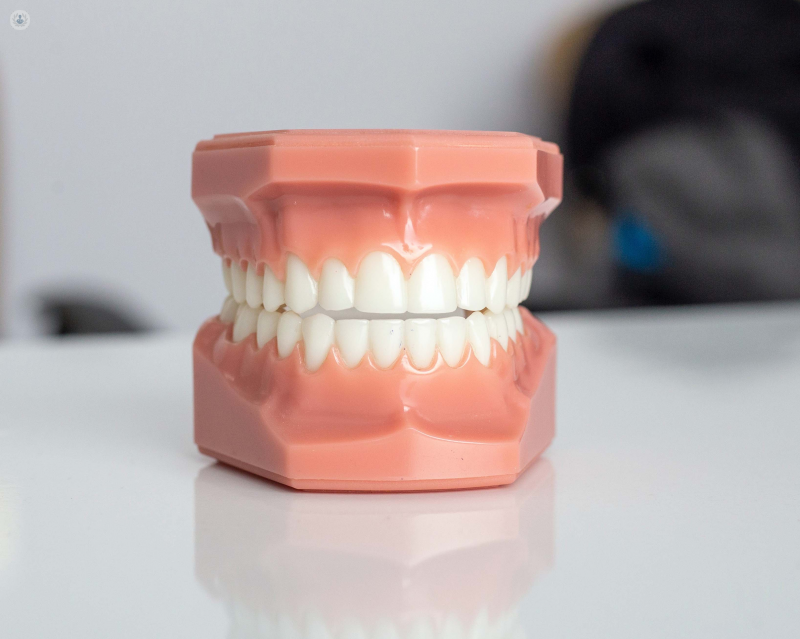Extracting and replacing molars: this is how the treatment works
Written by:Tooth extraction is a common procedure but there are a few things to consider before deciding to have any teeth removed.

We spoke with expert specialist in prosthodontics, Professor Christian Mehl, to discuss how molars are removed, what the risks involved are and whether tooth extraction is painful. Find out what to expect from molar extraction, in this article.
When does a molar definitely need to be extracted?
The extraction of a molar tooth is needed if it cannot be crowned or saved with root canal treatment. The lost molar is often affected by severe tooth decay and might be painful. Here is what you need to know about the treatment:
Basic information on treatment
|
How long does the extraction take? |
- Depending on the tooth, it takes from a few minutes to an hour |
|
Pain |
- Painless during the procedure thanks to anaesthesia, but you will feel pressure when the tooth is extracted - Pain after the operation can be eased with painkillers |
|
Food |
- Eat soft foods in the first few days after the operation |
How is a molar extracted?
If a tooth in the upper or lower jaw is already loose and wobbles, there is often concern that the tooth could fall out on its own. That rarely happens! Even a looser looking tooth is often still firmly anchored in the jawbone and cannot easily be removed.
Extracting molars is a routine procedure for your dentist. After receiving a local anaesthetic injection, the tooth is sometimes carefully cut into several fragments. Then the dentist will carefully loosen the molar tooth with lever-like instruments. The tooth fragments are removed with forceps or tweezers. The dentist should take great care to protect the gums and the jawbone. Since molars are relatively large, stitches to the wound are sometimes needed. After the procedure, biting on sterile cotton balls or gauzes will help to stop the bleeding. It usually takes seven to ten days for the gums to heal. After three to six months, the bone is completely healed.
On some occasions, the treatment could be more complex, such as when a fractured root remains in the jawbone after an accident or if the tooth fractures during the extraction procedure. In this case, the dentist needs to carefully remove the remains of the root. In some extremely complex cases, it can take an hour for the tooth to be completely removed. However, if the molar is loose in the jaw, the dentist can pull it out within a few minutes. Following the extraction, your dentist will send you home to recover. Recovery typically takes a few days depending on the severity and complexity of the extraction.
Is it risky to extract molars?
Serious complications are extremely rare. These include broken jaws or damage to neighbouring teeth. Your dentist will prepare well for the operation to keep the risks low. In the case of minor complications such as unforeseen bleeding, the dentist can usually take countermeasures directly.
Is tooth extraction painful?
Usually, all tooth extractions are performed under local anaesthesia, and the treatment is painless for many patients. Most of them will, however, notice the pressure when the tooth is pulled. Every person experiences pain differently. If you are anxious, it is best to let your dentist know beforehand. In our clinic we offer deep sedation, so that you will not notice when the tooth is extracted.
It is normal to feel some pain after the anaesthesia wears off, which is why you are given pain medication that you should take before the anaesthesia wears off. Cold packs wrapped in a towel or cold compresses also help to relieve the discomfort and reduce the swelling. The pain usually subsides after two-three days. Another tip: do not take Aspirin™ after the extraction to relieve the pain as it can lead to bleeding.
You should call your dentist if pain suddenly increases or lasts longer than 3 days.
If you will require any dental care, we recommend getting in contact with a highly experienced specialist in prosthodontics such as Professor Christian Mehl. Click here to visit his profile for information on appointment availability.


